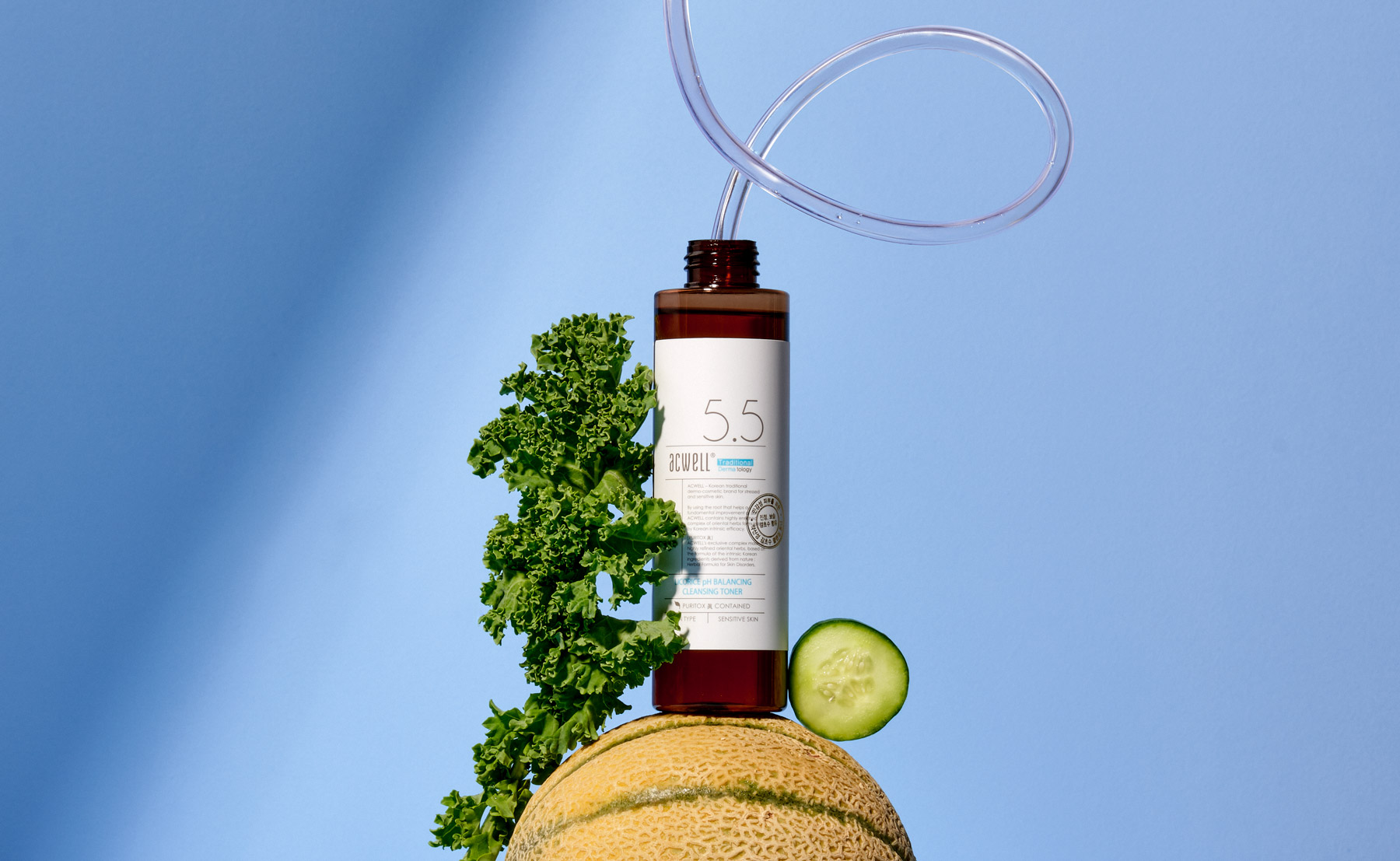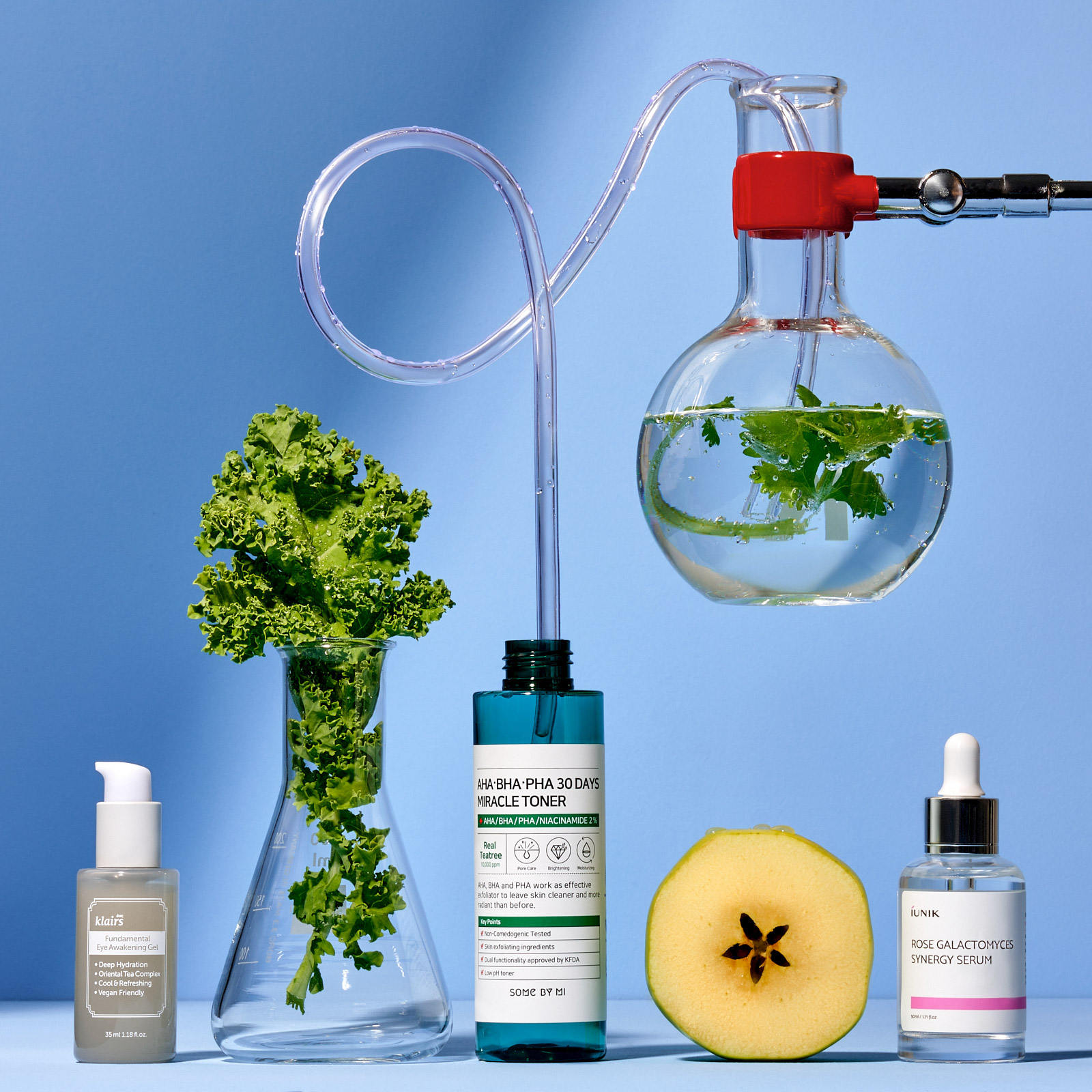EVERYONE TALKS ABOUT CLEAN COSMETICS. BUT WHAT IS CLEAN BEAUTY?
You may have heard of Clean Beauty, Cosmetica Pulita. This term has become very much in vogue lately, the Italian translation of which could be “Clean Skincare” or, for English speakers, “Skincare Clean”.
In general, Clean Beauty means that all ingredients that may be harmful to the skin and body have been eliminated from the product formulation.
It must be said, however, that there is no univocal definition of clean beauty, an aspect that can generate quite a few misunderstandings. Clean Beauty is a rather broad concept with poorly defined nuances, which, from beauty, embraces a multitude of universes, such as food, lifestyle and packaging.
EVERYONE TALKS ABOUT CLEAN COSMETICS. BUT WHAT IS CLEAN BEAUTY?
You may have heard of Clean Beauty, Cosmetica Pulita. This term has become very much in vogue lately, the Italian translation of which could be “Clean Skincare” or, for English speakers, “Skincare Clean”.
In general, Clean Beauty means that all ingredients that may be harmful to the skin and body have been eliminated from the product formulation.
It must be said, however, that there is no univocal definition of clean beauty, an aspect that can generate quite a few misunderstandings. Clean Beauty is a rather broad concept with poorly defined nuances, which, from beauty, embraces a multitude of universes, such as food, lifestyle and packaging.
In general, according to the approach that Miloon shares with the most established schools of thought in the world, Korean cosmetics products are free of:
– ARTIFICIAL FRAGRANCES
– PARABENS
– MINERAL OILS
– SULPHATES (SLS and SLES)
– ARTIFICIAL COLORANTS
If the concept of Cosmetica Clean revolves around the selection of certain ingredients, it is worth clarifying right away that the country’s regulations dictating the first criteria for such selection is the first major point to be clarified.
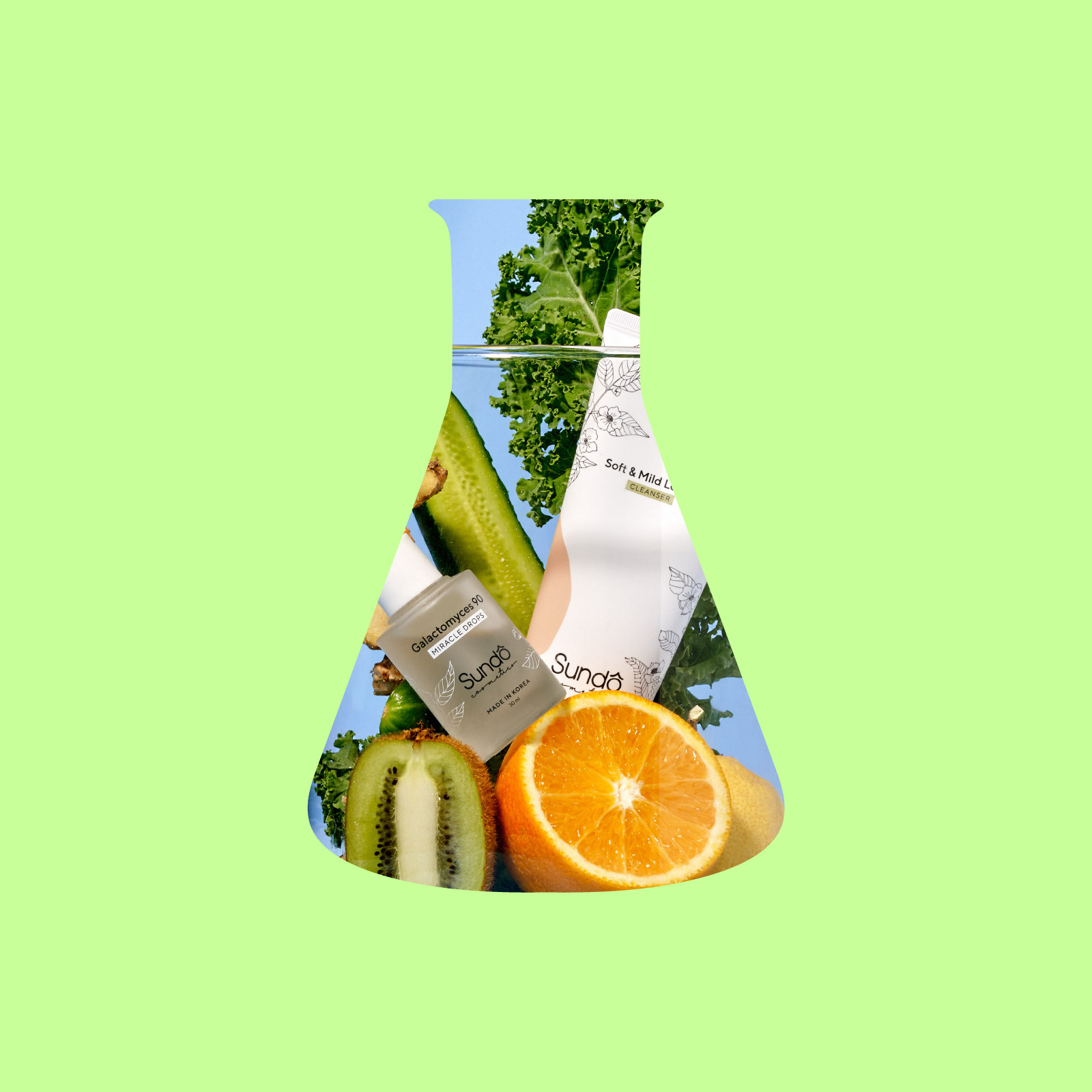

In general, according to the approach that Miloon shares with the most established schools of thought in the world, Korean cosmetics products are free of:
– ARTIFICIAL FRAGRANCES
– PARABENS
– MINERAL OILS
– SULPHATES (SLS and SLES)
– ARTIFICIAL COLORANTS
If the concept of Cosmetica Clean revolves around the selection of certain ingredients, it is worth clarifying right away that the country’s regulations dictating the first criteria for such selection is the first major point to be clarified.
BECAUSE THERE IS NO CLEAR DEFINITION OF CLEAN BEAUTY OR CLEAN COSMETICS.
In fact, in a global market for what concerns trends and brands that seem to go in unison, there are different legal systems. In this respect, Korea, USA, Italy are very different. Proof of this is that, by searching the web, it is possible to find conflicting information on the same ingredient, depending on how they are classified by the regulatory system of the country where these products are sold.
But that’s not all. These legislative gaps mean that ingredients that have yet to be tested for safety and efficacy are often ousted. This is then followed by a smear campaign on every possible and imaginable platform.
The knot is all in the provisions of the departments in charge of control, such as the Ministry of Health or the famous Federal Drug, Food and Administration (FDA). For example, the FDA does not require beauty products or ingredients to be approved before going to market, except for certain categories of substances, such as color additives – to prevent the use of tar and charcoal in products such as hair dyes – recent addition of sunscreens and acne medications since they are considered drugs.
How confusing… But the good news is that European Union countries, and Italy out of all the EU countries, is leading the way, are the ones with the most stringent and strict regulations when it comes to health and preserving consumer rights.
And if this is not enough for you, you should know that nothing escapes the watchful eye of Miloon’s buyers, who do not select a product until they have carefully examined the list of ingredients and tested it on their own skin.
As you may have guessed by now, Miloon follows the Korean way of thinking: there are no shortcuts. Basically, repetita iuvant, consistency is the key for every skin and every body, which cannot look perfect without being healthy.
But it can happen that certain names are a little scary, especially on those who tend to care more about the ingredients that are on their skin. That’s why we have developed a sticker that goes to signal precisely these cosmetics that can to all intents and purposes boast the term Clean.
BECAUSE THERE IS NO CLEAR DEFINITION OF CLEAN BEAUTY OR CLEAN COSMETICS.
In fact, in a global market for what concerns trends and brands that seem to go in unison, there are different legal systems. In this respect, Korea, USA, Italy are very different. Proof of this is that, by searching the web, it is possible to find conflicting information on the same ingredient, depending on how they are classified by the regulatory system of the country where these products are sold.
But that’s not all. These legislative gaps mean that ingredients that have yet to be tested for safety and efficacy are often ousted. This is then followed by a smear campaign on every possible and imaginable platform.
The knot is all in the provisions of the departments in charge of control, such as the Ministry of Health or the famous Federal Drug, Food and Administration (FDA). For example, the FDA does not require beauty products or ingredients to be approved before going to market, except for certain categories of substances, such as color additives – to prevent the use of tar and charcoal in products such as hair dyes – recent addition of sunscreens and acne medications since they are considered drugs.
How confusing… But the good news is that European Union countries, and Italy out of all the EU countries, is leading the way, are the ones with the most stringent and strict regulations when it comes to health and preserving consumer rights.
And if this is not enough for you, you should know that nothing escapes the watchful eye of Miloon’s buyers, who do not select a product until they have carefully examined the list of ingredients and tested it on their own skin.
As you may have guessed by now, Miloon follows the Korean way of thinking: there are no shortcuts. Basically, repetita iuvant, consistency is the key for every skin and every body, which cannot look perfect without being healthy.
But it can happen that certain names are a little scary, especially on those who tend to care more about the ingredients that are on their skin. That’s why we have developed a sticker that goes to signal precisely these cosmetics that can to all intents and purposes boast the term Clean.
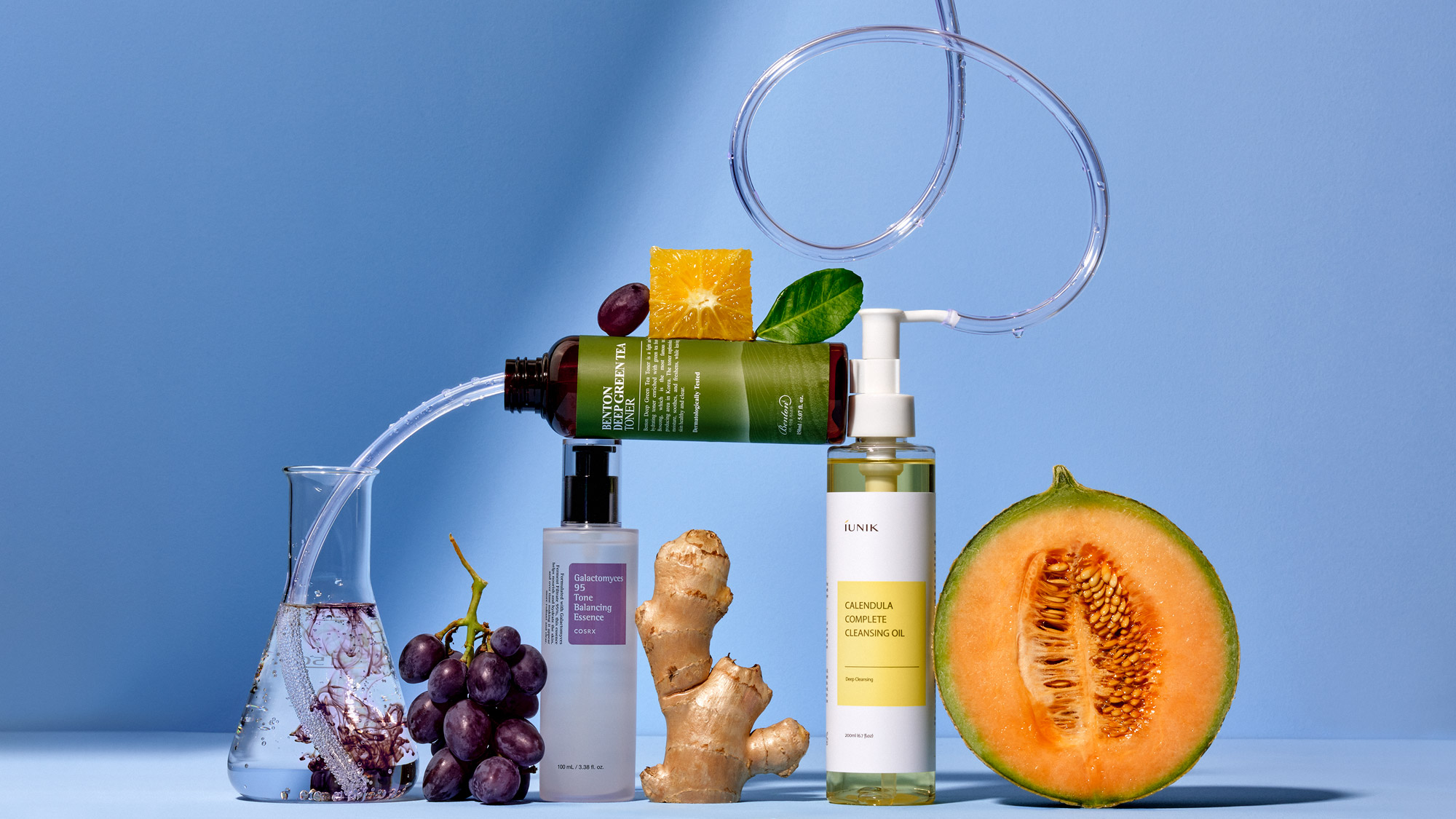
THE CLEAN BEAUTY PHENOMENON: WHEN THE WORLD IS FASCINATED BY CLEAN COSMETICS.
Certainly, today the subject of Clean Cosmetics is a topic that has been cleared through customs all over the world and also given the ever-increasing interest in a healthy and conscious lifestyle as opposed to the worsening of climatic conditions worldwide.
In many parts of the world such as Asia, for example, skincare clean was born in response to the phenomenon of fine dust. This is a form of air pollution and is a very important and current problem.
In these places the government often issues warnings about high dust levels and encourages people to wear masks when going out. In addition to posing a serious overall health risk, poor air quality also affects the health and appearance of the skin. That’s why more women are looking for cleaner alternatives that don’t generate irritation or other side effects to their skin and body.
THE CLEAN BEAUTY PHENOMENON: WHEN THE WORLD IS FASCINATED BY CLEAN COSMETICS.
Certainly, today the subject of Clean Cosmetics is a topic that has been cleared through customs all over the world and also given the ever-increasing interest in a healthy and conscious lifestyle as opposed to the worsening of climatic conditions worldwide.
In many parts of the world such as Asia, for example, skincare clean was born in response to the phenomenon of fine dust. This is a form of air pollution and is a very important and current problem.
In these places the government often issues warnings about high dust levels and encourages people to wear masks when going out. In addition to posing a serious overall health risk, poor air quality also affects the health and appearance of the skin. That’s why more women are looking for cleaner alternatives that don’t generate irritation or other side effects to their skin and body.
MILOON AND CLEAN COSMETICS: CLEAN BEAUTY BY MILOON.
For us at Miloon Clean Beauty, it’s serious business. We understand Clean Cosmetics as a trend that needs to marry with your lifestyle. Clean beauty is about prioritizing the source of the ingredient and incorporating natural ingredients that are designed to be effective and safe for your body.
When a convention doesn’t exist, it’s best to establish a new one. So on Miloon, we’ve decided to define a cosmetic as “clean” if it’s free of
– PARABENS
– ARTIFICIAL FRAGRANCES
– MINERAL OILS
– SULPHATES (SLS and SLES)
– ARTIFICIAL COLORANTS
To allow you to locate these Clean Beauty products at a glance, we created this sticker.
MILOON AND CLEAN COSMETICS: CLEAN BEAUTY BY MILOON.
For us at Miloon Clean Beauty, it’s serious business. We understand Clean Cosmetics as a trend that needs to marry with your lifestyle. Clean beauty is about prioritizing the source of the ingredient and incorporating natural ingredients that are designed to be effective and safe for your body.
When a convention doesn’t exist, it’s best to establish a new one. So on Miloon, we’ve decided to define a cosmetic as “clean” if it’s free of
– PARABENS
– ARTIFICIAL FRAGRANCES
– MINERAL OILS
– SULPHATES (SLS and SLES)
– ARTIFICIAL COLORANTS
IF A PRODUCT ON MILOON DOESN'T HAVE THE CLEAN BEAUTY STICKER, DOES THAT MEAN IT'S BAD FOR MY SKIN?
Let’s not speak heresy. When you buy on Miloon, you can always rest assured.
Every product you find on our website complies with European and Italian regulations issued by the Ministries of Health and Economic Development. And Italian regulations, as well as the origin of food, are the strictest in the world.
At Miloon you will only find original products that come directly from official and authorised distributors. We take this opportunity to remind you to be careful.
The world of Korean cosmetics is now a very lucrative and is happening as for the Italian fashion: depopulating fakes. The Internet is teeming with discounted branded products, which very often are close to expiration (or even expired) or not original because they come from the East. When shopping, always keep your eyes open. Or your skin could be in for some very nasty surprises.
And now let’s go over Artificial Fragrances, Sulfated Mineral Oils and Artificial Dyes and see if we can get a better understanding of what they are and if they should be avoided.
Will it always be true that they are harmful?
IF A PRODUCT ON MILOON DOESN'T HAVE THE CLEAN BEAUTY STICKER, DOES THAT MEAN IT'S BAD FOR MY SKIN?
Let’s not speak heresy. When you buy on Miloon, you can always rest assured.
Every product you find on our website complies with European and Italian regulations issued by the Ministries of Health and Economic Development. And Italian regulations, as well as the origin of food, are the strictest in the world.
At Miloon you will only find original products that come directly from official and authorised distributors. We take this opportunity to remind you to be careful.
The world of Korean cosmetics is now a very lucrative and is happening as for the Italian fashion: depopulating fakes. The Internet is teeming with discounted branded products, which very often are close to expiration (or even expired) or not original because they come from the East. When shopping, always keep your eyes open. Or your skin could be in for some very nasty surprises.
And now let’s go over Artificial Fragrances, Sulfated Mineral Oils and Artificial Dyes and see if we can get a better understanding of what they are and if they should be avoided.
Will it always be true that they are harmful?
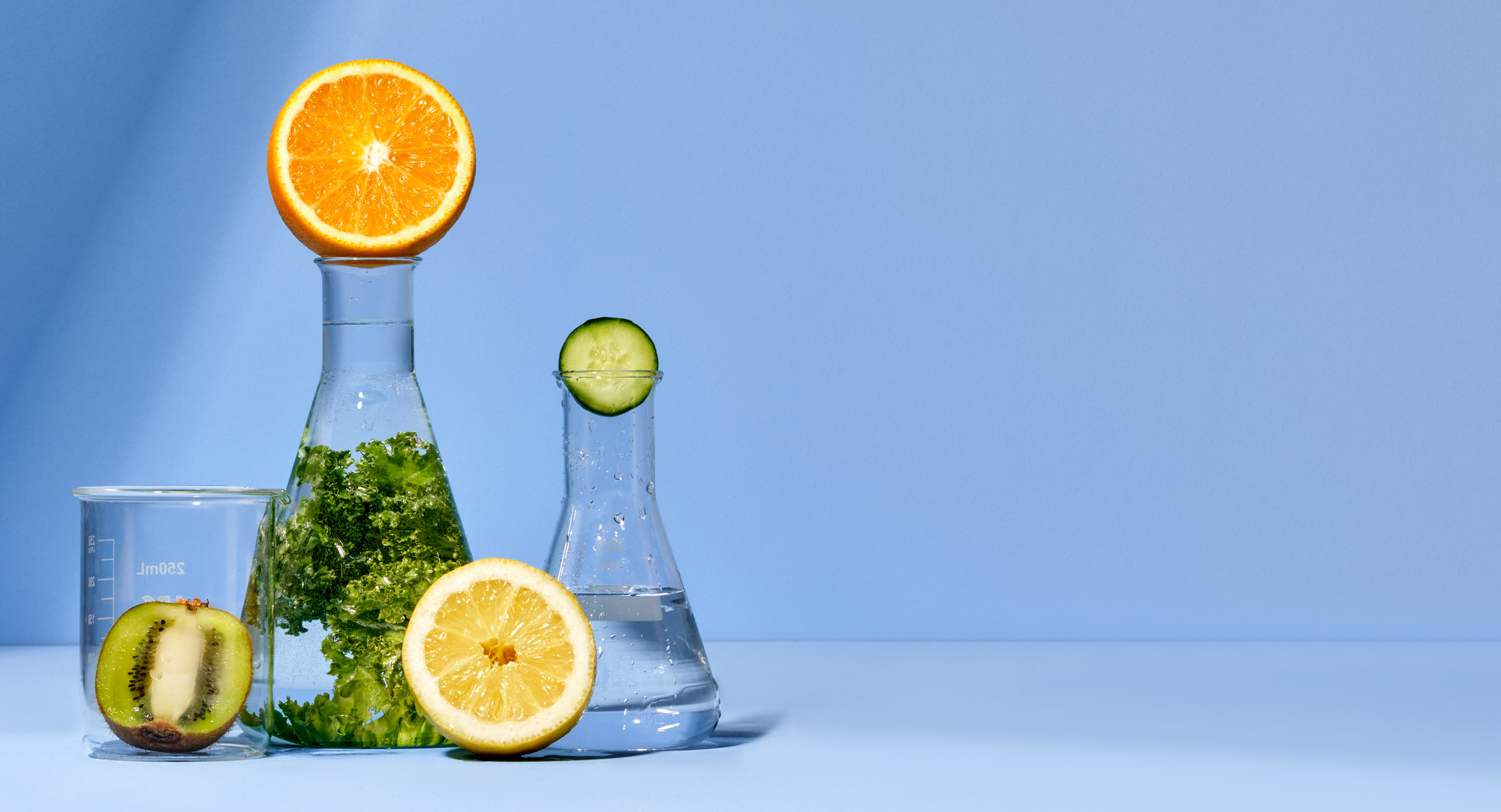
PARABENS.
PARABENS: WHAT ARE THEY?
Parabens are a popular type of preservative. They are present in about 85% of all cosmetics and toiletries and are used to control the growth of microbes. Parabens are used to make sure that mold doesn’t grow on your cosmetics.
They are referred to in ingredient lists with the term “-paraben”. The most common are methylparaben, ethylparaben, propylparaben and butylparaben.
PARABENS: IS IT REALLY RIGHT TO HATE THEM?
Parabens have been ostracized in the beauty world because of a 2004 study by scientists at the University of Reading that linked parabens to the onset of breast cancer. But the scientific community is conflicted, as any concrete link between parabens and breast cancer has never actually been proven.
PARABENS: THE VERDICT.
Even according to the FDA, there is “no basis for demonstrating that parabens used in cosmetics have an effect on human health.”
It is also important to remember that products need preservatives, otherwise cosmetics could not be used after just a few days because they would develop mold, fungus and bacteria.
So if a product claims to be “paraben-free,” chances are it is formulated with other natural preservatives that consumers have not yet heard of, such as phenoxyethanol, sodium benzoate and benzyl alcohol.
MINERAL OILS.
MINERAL OILS: WHAT ARE THEY?
Mineral oil is a common ingredient found in skin care products due to its ability to prevent moisture loss. It has been a mainstay in U.S. homes for many years through creams and lotions, as well as Vaseline and baby oil.
You’ll find them on the ingredient list labeled as “mineral oils,” but other ingredients that are part of the petroleum family include Paraffin, Microcrystalline Wax, Petrolatum, Unspecified Waxes, Petroleum, Distillates and more.
MINERAL OILS: WHY ARE THEY CONTROVERSIAL?
On the one hand, some say that mineral oil is natural, and point to it as an example of a non-comedogenic and effective product. On the other hand, others say that it should not be applied to the skin and that it is better to use a safer alternative.
Since it is a byproduct of petroleum that is created when oil is distilled to become gasoline, logic would suggest avoiding it.
In truth, mineral oils fail to meet the multiple hydration needs of the skin, which simply keeps the amount of moisture in the skin intact while locking in other excess elements.
MINERAL OILS: THE VERDICT.
At the end of the day, mineral oils should not always be considered dangerous. Of course, their origin leaves us perplexed, but it must be said that there are excellent alternatives on the market, such as avocado oil or cocoa or shea butter that can help meet the many needs of skin hydration.
ARTIFICIAL FRAGRANCES.
ARTIFICIAL FRAGRANCES: WHAT ARE THEY?
Artificial fragrances are substances used to make a product more fragrant and are sometimes used to mask the unpleasant smell of other ingredients.
In the list of labeled ingredients, they are referred to as fragrances or parfums (generic terms that, because of their generality, are somewhat controversial.
ARTIFICIAL FRAGRANCES: WHY ARE THEY CONTROVERSIAL?
The doubt lies in the fact that the source or origin of the artificial fragrance is not clearly stated and that is why it is typically placed in the large group of “Fragrance” or “Parfum”.
ARTIFICIAL FRAGRANCES: THE VERDICT.
If the problem is that of the origin of the artificial fragrance it must be said that there are fragrances on the market having a certain and natural origin, such as natural sources of perfume and other natural sources such as essential oils, flowers, fruits, herbs, seeds, bark, wood and roots.
SLS AND SELS.
SLS AND SLES: WHAT ARE THEY?
SLS and SLES are ingredients commonly used to create foam and bubbles. They are commonly found in detergents, shampoos, and toothpastes and are used to give these products their cleaning properties, thus helping to degrease and remove oil from hair and skin.
SLS AND SLES: WHY ARE THEY CONTROVERSIAL SUBSTANCES?
SLS and SLES are very effective – even too effective – at removing oil from the skin, they enter the skin and attach to the proteins inside, which has been linked to causing skin sensitivity.
SLS AND SLES: THE VERDICT.
There have been several studies that have determined that SLS and SLES are not bad for you, maybe they can make your skin more sensitive though.
So unless you have a sensitive skin problem, using SLS/SLES may not generate any problems. Our advice is always the same: do a patch test. If your skin seems to respond well, then you’re not intolerant to SLS/SLES.
ARTIFICIAL DYES.
ARTIFICIAL DYES: WHAT ARE THEY?
Artificial dyes are chemical additives that can change the coloring of a product. They serve no purpose other than to make a product more attractive to the consumer.
They are listed on ingredient lists labeled as “colorants,” CI 26100, F&DC 6, Red 1, Blue 3, and Yellow 6.
ARTIFICIAL DYES: WHY ARE THEY CONTROVERSIAL?
Because artificial dyes can contain traces of coal tar or petroleum, which could be contaminated with heavy metals such as lead and arsenic, artificial dyes are a controversial ingredient in skin care.
ARTIFICIAL DYES: THE VERDICT.
When the source of artificial dyes is unknown and you are concerned about the origin of artificial dyes, we recommend looking for alternative ingredients such as: naturally derived fruits, plants, herbs and colors.
